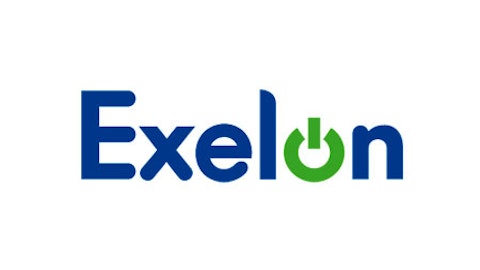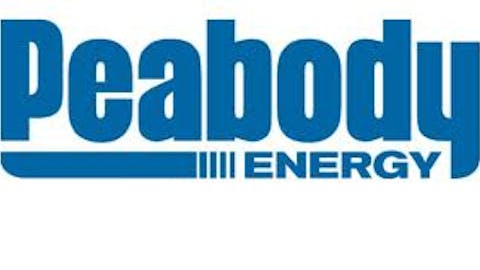U.S. coal companies have been going through hard times since April 2011. Both met and thermal coal producers have lost significant amounts of their market capitalization in recent times. The reasons behind the downturn in the coal industry are primarily the economic crisis in Europe and lower natural gas prices in the U.S. as a result of the shale gas boom. It hasn’t been more than two years since coal companies began losing their stock prices, and the process is still ongoing. The following table shows the losses in the coal industry since the beginning of 2013.
| Year to date (2013*) | |
|---|---|
| Arch Coal Inc (NYSE:ACI) | -35% |
| Walter Energy, Inc. (NYSE:WLT) | -60% |
| Alpha Natural Resources | -35% |
| Peabody Energy | -29% |
| Market Vector Coal | -20% |
Source: Google finance
Tough times for coal industry
Market Vectors-Coal ETF (NYSEMKT:KOL) is likely to underperform the broad market in the near future, as the coal industry continues to face pressures.
Thermal coal markets were already weak, but lately it seems that met coal markets are also losing ground. Met coal prices and market conditions remain feeble as we move through the second half of 2013. In addition to the Euro crisis, the Chinese and Indian economies have also started showing signs of a slowdown, which adds to the pressures faced by the coal industry, especially by met coal producers. The met coal benchmark contract fell to $145 per metric ton for the third quarter of 2013, as compared to $172 metric ton in 2Q 2013. Market consensus is building up that the met coal benchmark price for the fourth quarter will stay weak and will settle around $150 per metric ton.
Walter Energy, Inc. (NYSE:WLT) is likely to suffer the most from weak met coal market conditions, as it has significant exposure to met coal operations. Given that weak met coal conditions prevail, Walter Energy, Inc. (NYSE:WLT) may witness a further drop in its stock price. As a result of the 60% drop it has already experienced, Walter Energy, Inc. (NYSE:WLT)’s debt-to-equity ratio has increased to 285%, which remains a risk for investors. To improve upon its financial flexibility and survive the prevalent weakness in coal markets, Walter Energy, Inc. (NYSE:WLT) secured a credit amendment and declared a dividend cut of 92%. The credit amendment, which Walter Energy, Inc. (NYSE:WLT) secured earlier this quarter, provides the company some financial flexibility through 2015, as the amendment suspends the senior leverage ratio covenant and the interest coverage ratio covenant till June 2014 and March 2015, respectively .
Moreover, Walter Energy, Inc. (NYSE:WLT) has undergone a credit rating downgrade, and has been placed on ‘credit watch’ by S&P Ratings, exposing the company to further downgrade risk.
Thermal coal markets also continue to portray a negative picture of the coal industry. Arch Coal Inc (NYSE:ACI) is among the leading thermal coal producers in the U.S. Arch Coal Inc (NYSE:ACI)’s financial health has deteriorated in recent years due to weak coal market conditions. Arch’s stock price has plunged 35% year to date. Lower natural gas prices and the Obama administration’s harsh attitude toward coal usage are among the leading factors for depressed thermal coal markets. Natural gas prices bottomed in April 2012, reaching a level of $1.90 per million British Thermal Units; since then, natural gas prices have increased, but not enough to encourage the usage of coal on a large scale by electricity generators. As long as natural gas prices remain below $4.00 mmBtu, thermal coal markets will remain weak.
Coal companies are selling off their assets to generate liquidity to ensure their survival in these tough industry conditions. Last month, Arch Coal Inc (NYSE:ACI) completed the sale of its Utah and Colorado mines to Bowie Resources for $423 million; the transaction improved the company’s liquidity position. The mines accounted for 2% of the company’s coal reserves. The important takeaway from the transaction was that the mines were the most profitable ones that Arch held. In 2012, the Utah and Colorado mines had an operating margin of $9 per ton, as compared to an operating margin of $2 per ton and $1 per ton at Arch’s Central Appalachian mines and its Powder River Basin, respectively. This sale will therefore hurt the company’s future earnings potential.
SummaryUncertainty is most likely to prevail in the coal industry, due to weak met and thermal coal markets. Supply cuts, a rise in natural gas prices, and favorable government policies are the likely factors to bring some positives for the industry. Also, tough market conditions have made financial flexibility and liquidity vulnerable for coal companies. Given the ongoing and ever-increasing challenges, the coal industry is likely to underperform the broad market in the near future, and coal stocks could experience further drops in prices due to the prevailing uncertainties. Therefore, valuations for coal stocks are expected to remain depressed in the near term.
America’s Energy Boom
Record oil and natural gas production is revolutionizing the United States’ energy position. Finding the right plays while historic amounts of capital expenditures are flooding the industry will pad your investment nest egg.
The article The Future Is Still Uncertain for Coal originally appeared on Fool.com and is written by Syed Shah.
Syed Shah has no position in any stocks mentioned. The Motley Fool has no position in any of the stocks mentioned.
Copyright © 1995 – 2013 The Motley Fool, LLC. All rights reserved. The Motley Fool has a disclosure policy.





